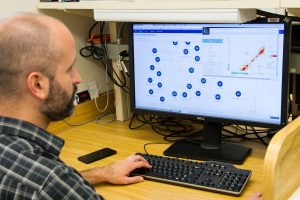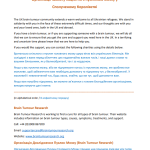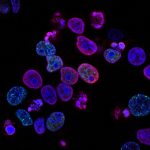Thanks to recent developments in the brain tumour research landscape, our classification of gliomas has become more granular. Specifically, with a move towards classifying gliomas molecularly. In this article we unpack the World Health Organisation’s recent update on classifying gliomas.
What’s new?
In a recent update, the World Health Organisation (WHO) stated that there are ongoing developments being made in classifying gliomas. The WHO said these developments aim to help with the diagnosis and management of these tumours.
In the past, brain tumours have been classified based on the presumed cell they originated from. For example, astrocytoma which originates from astrocytes.
However, this form of classification can be improved upon. Molecular markers have been yielding better predictive information. Additionally, it is expected that this molecular classification will allow for a more accurate knowledge of appropriate treatments and therapies, therefore leading to improved outcomes for glioma patients.
What’s next?
This change was identified and shared in the 2021 5th edition of the WHO classification of central nervous system tumours (WHO 2021). The clinical research community is hopeful that this further refinement will allow for, and be used in, improved diagnosis, prognostication, and treatment. Potentially, becoming the new standard for how we identify gliomas.
For an in-depth look and review of the WHO update, click here.
Want to receive all the latest research straight to your inbox?
Sign-up our curated, jargon-free weekly research newsletter. Click here to fill out our contact form and select ‘research’ to opt into our research newsletter.
Get involved with research…
If you would like to use your experience and insight to support clinical research, consider signing up to be a PRIME advocate for brainstrust.
If you or someone you love is living with a brain tumour and have any questions around this latest news, or want to access support, give us a call on 01983 292 405 or email hello@brainstrust.org.uk. You can also visit our little brainstrust website which features support for children affected by brain tumour.








